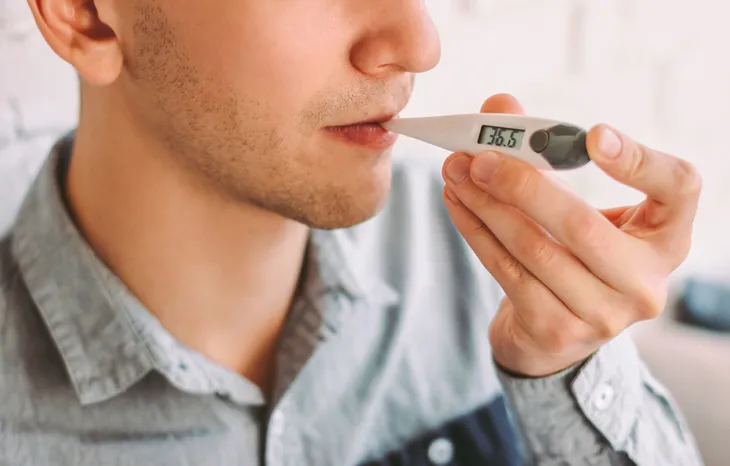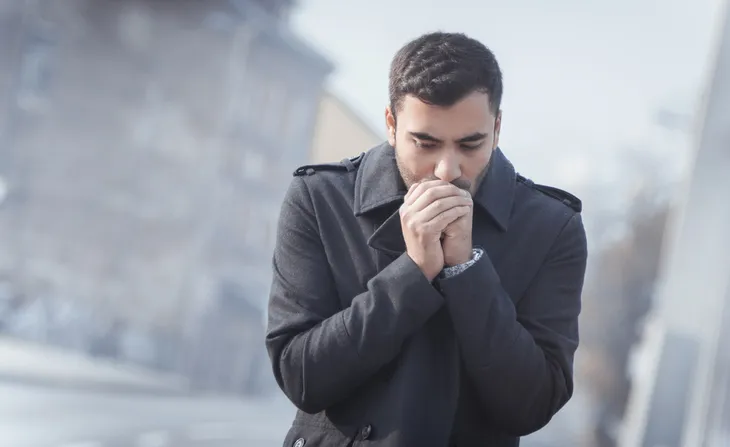Body temperature is a way to measure your body’s ability to generate and remove heat. Body temperature below 95-degrees Fahrenheit is considered abnormally low and is known as a condition called hypothermia. This can happen when our body loses heat faster than it can produce it.
Hypothermia is a medical emergency and if left untreated, it can cause serious complications like brain damage. In some cases, it can even be fatal. Knowing the signs, causes, and risk factors are so important to help prevent it from happening in the first place. In this article, we take a closer look into the causes of low body temperature as well as the signs and what to do if it happens.
What Is Normal Body Temperature?
Before we explore low body temperature it’s important to have an understanding of what is considered normal body temperature. First, normal body temperature isn’t the same for everyone. Mayo Clinic explains that your “normal” temperature could be 1-degree different from someone else’s. That said, the average normal body temperature is around 98.5-degrees Fahrenheit.
Your temperature can fluctuate through the day too. Things that can affect your body temperature include your age, sex, what you’ve eaten or had to drink, if you’re in your menstrual cycle, and how active you are. Body temperature that is too high is considered a fever and temperatures too low are considered hypothermia.
The Risks of Body Temperature Dropping Too Low
When your body temperature drops too low, hypothermia can occur. This happens when the body temperature drops below 95-degrees Fahrenheit. Hypothermia can cause serious complications and can even be fatal.
To ensure an individual gets the help they need, you should know the signs and symptoms of hypothermia. Let’s take a look at these next.
Signs and Symptoms of Low Body Temperature
Being able to recognize the signs and symptoms of hypothermia is important to ensure you get the individual help immediately. The first and most common sign of hypothermia is excessive shivering.
Other common signs of hypothermia include slurring and slowed speech, slow, shallow breathing, clumsiness, stumbling, and confusion. An unconscious individual may also be hypothermic. In this case, check for their pulse and seek medical attention immediately.
Babies can be at risk for hypothermia too. Signs of low body temperature in babies include pale skin, difficulty breathing, lethargy, and lack of interest in eating. You should also be especially observant if the infant was born early or has a low birth weight. These factors can put them at an even greater risk for low body temperature.
Causes of Low Body Temperature (Hypothermia)
The most common cause of hypothermia is cold weather. When you’re in extremely cold temperatures, your body loses heat more quickly than it can produce. If you stay in cold weather for too long, it can also cause hypothermia.
Cold outdoor temperatures aren’t the only cause of hypothermia. Healthline explains, “For example, if you step into an extremely cold, air-conditioned room immediately after being outside, you risk losing too much body heat in a short period.”
There are also other risk factors like age, mental illness, and certain medical conditions that can increase your risk of low body temperature. Let’s take a look at these next.
Age
Your age can put you at risk for low body temperature. More specifically, hypothermia is a concern for older adults and newborns.
Normal body temperature for adults is about 98.5-degrees Fahrenheit but older adults may have lower body temperature. This can happen because as we age, we lose fat under our skin and the skin becomes dryer too. Both of these factors can cause loss of body heat.
In contrast, babies are at risk for hypothermia because they may not be good at regulating body temperature and can lose heat quickly. Body temperature below 97-degrees Fahrenheit is considered too low for infants. Always keep babies at normal temperatures.
Mental Illness and Dementia
Some mental illnesses like bipolar disorder and schizophrenia can put you at a greater risk for hypothermia. Similarly, dementia or memory loss can affect comprehension skills and therefore put you at a greater risk for hypothermia
This is because people with impaired mental judgment may stay outside in extreme cold temperatures for too long. They may also dress inappropriately for the weather putting them at a greater risk. So while mental illness and dementia don’t exactly cause low body temperature, they can put you at a greater risk.
Medical Conditions
Some medical conditions can increase your risk of low body temperature. This is because some conditions can affect your body’s ability to maintain a normal body temperature or cause you to feel cold.
Some of these conditions are arthritis, dehydration, diabetes, hypothyroidism, and Parkinson’s disease. Other medical emergencies like a stroke, spinal cord injuries, or burns can also cause a lack of feeling in your body.
What to Do if You or Someone Around You Has Hypothermia
Hypothermia is a medical emergency and requires immediate medical attention. Until medical help arrives here are some first-aid tips you can follow for hypothermia:
- Move out of the cold and remove wet clothing (if applicable).
- Use dry blankets and cover the body leaving only the face exposed.
- Don’t massage or rub the person as this may trigger cardiac arrest.
- Monitor breathing. If their breathing is shallow or appears to have stopped, perform CPR if you’re trained.
- If they’re alert, provide warm, sweet beverages but avoid caffeine or alcohol.
- Apply a first-aid warm compress only to the neck, chest, or groin. Don’t use hot water, a heating pad, or a heating lamp because this can cause irregular heartbeats that may cause the heart to stop.
How to Prevent Hypothermia
If you know you’ll be heading outdoors into cold temperatures make sure you wear appropriate clothing. For starters wear layers and a proper coat. Ensure your ears, hands, and feet are covered and warm. It would also be a good idea to take frequent breaks from being outside so you can warm-up indoors.
Since children and older adults are more susceptible to hypothermia there are some steps you can take to prevent hypothermia in the home. Keep your home at a temperature above 68-degrees Fahrenheit. When you feel cold, walk around to increase your body temperature.












